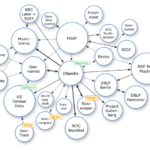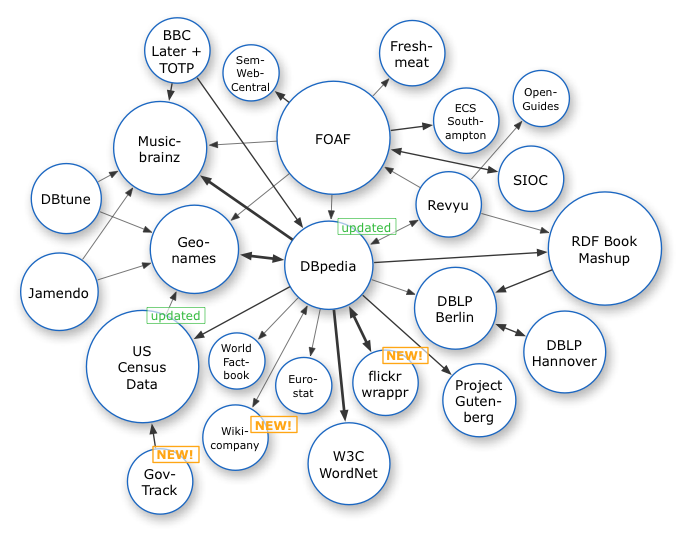Table of Contents
Toggle‘Building Author Authority with Schema Markup‘ provides an analytical and strategic roadmap for enhancing content visibility and credibility in today’s SEO-focused digital landscape and explores the significance of author authority, underlining the necessity of a robust E-E-A-T strategy, while also exploring how author schema markup can bring transparency to authorship, optimizing your digital footprint. This comprehensive guide is tailored for authors, content strategists, and SEO specialists seeking to master the art of authorship practices, aligning with Google’s quality rater guidelines, mitigating fake news spread, and ultimately, leveraging author authority for optimal digital impact.
Key Takeaways
- Author authority is crucial for distinguishing between reliable and unreliable sources, especially in healthcare.
- Implementing author schema markup helps build an author’s Google Profile and assures readers of value.
- Being recognized as an expert on a topic is crucial for readers to trust and value the content.
- Including content reviewers and third-party references adds transparency and builds trust.
Understanding Author Authority
The concept of author authority is rooted in the ability of a writer to establish themselves as a credible and trusted source of information in their respective field. This authority is not simply bestowed, but rather earned through consistent demonstration of expertise and knowledge. For online content, this authority is bolstered by the strategic use of SEO tactics and Author Schema Markup, which provide transparency about the author’s credentials, and help search engines understand the author’s relevance to a particular topic. With the rise of misinformation, author authority has become an essential tool in building trust with audiences, and is a crucial factor in Google’s ranking algorithm. Ultimately, establishing author authority is a strategic, long-term investment that enhances content value, visibility, and credibility.
Role of Author Schema Markup
This powerful SEO tool serves as an indicator, informing both readers and search engine algorithms about the authorship of a content piece. Leveraging Author Schema Markup strategically can significantly enhance an author’s online presence and recognition. It boosts the author’s credibility and, correspondingly, the trustworthiness of their content, thereby influencing the website’s domain authority. Furthermore, it aids in creating a strong Author-Entity association, enhancing the visibility and ranking of the author’s content on SERPs. In essence, the judicious implementation of the Author Schema Markup is a game-changer in the digital realm, enabling authors to establish and demonstrate their authority effectively.
Enhancing Author Authority With SEO
By leveraging keyword research to align with audience needs, authors can increase the relevance of their content. Moreover, high-quality, unique content is rewarded by search engines, directly impacting an author’s authority. Other practices such as incorporating inbound and outbound links, optimizing meta-descriptions, and ensuring mobile-friendliness can also enhance visibility. Additionally, utilizing structured data, like Schema markup, can improve an author’s recognition by search engines. Ultimately, a well-executed SEO strategy is integral to establishing and enhancing author authority.
Establishing Authorship With Schema Markup
While SEO strategies significantly augment an author’s credibility, implementing Schema Markup presents an effective way to further establish authorship and enhance visibility in search engine results. Schema Markup, a semantic vocabulary of tags, allows search engines to interpret the information on your webpage more effectively, leading to increased SERP visibility.
| Key Element | Description |
|---|---|
| Author Tag | Identifies the author of the content. |
| DatePublished Tag | Shows when the content was first published. |
| Article Tag | Specifies that your webpage contains an article. |
| Publisher Tag | Indicates the publisher of the article. |
Using Schema Markup strategically, authors can create a robust digital footprint, ensuring that their content stands out in a saturated digital environment. This approach not only elevates the author’s credibility but also improves the user’s search experience by providing richer and more informative results.
Building Trust With Author Authority
In today’s digital age, establishing author authority is crucial for building trust among readers and enhancing the credibility of your content. This can be achieved through a couple of strategic steps:
- Developing Author Transparency:
- Providing honest and detailed information about the author’s background, experience, and expertise.
- Utilizing Schema Markup to highlight the author’s credentials and affiliations.
- Building a Reputation:
- Consistently producing high-quality, well-researched content that adds value to the reader.
- Engaging with readers and responding to their feedback.
Building trust with author authority is a meticulous process that requires strategic planning, a commitment to quality, and a deep understanding of SEO. With a strong author authority in place, your content will stand out and gain the trust of your readers.
Impact of Author Authority on SERPs
Although author authority is not a direct ranking factor for Search Engine Results Pages (SERPs), it significantly influences the reputation scores that search engines, such as Google, consider when recommending content. A well-established author’s reputation can elevate the trustworthiness of a website, enhancing its visibility and ranking on SERPs. High-authority authors often have their content prioritized, leading to higher click-through rates and increased website traffic. Implementing schema markup can further amplify an author’s authority by providing search engines with explicit information about the author’s credibility and expertise. Consequently, a strategic approach to building and presenting author authority, coupled with the effective use of schema markup, can dramatically improve a website’s SERP performance.
Google’s Recognition of Author Authority
Google’s recognition of author authority plays a fundamental role in how content is ranked and valued in the digital landscape. This recognition is guided by their Experience, Expertise, Authoritativeness, and Trustworthiness (E-E-A-T) criteria.
- Expertise: Google’s algorithms favor content created by individuals with significant knowledge in their respective areas. This includes academic credentials and real-world experience.
- For instance, medical content written by healthcare professionals is often ranked higher due to their proven expertise.
- Authoritativeness: Google values content from recognized authorities.
- This could include journalists for major news outlets or renowned industry experts.
Effective Schema markup can enhance an author’s authority, helping Google to better understand and rank their content. Ultimately, author authority and Schema markup together can significantly impact SEO strategy.
Boosting Your Author Authority
Boosting your author authority requires strategic planning, consistent effort, and the effective use of Schema markup to highlight your expertise and credibility. Schema Markup, a semantic vocabulary added to your website, communicates your authorship and content value to search engines.
By consistently publishing high-quality, original content on reputable platforms, you establish your expertise, asserting your voice in the digital landscape. Transparency in authorship and credentials further enhances your credibility.
Leveraging Schema Markup, particularly ‘Person’ and ‘Article’ schemas, you can provide explicit authorship information. This structured data helps search engines recognize your author entity, enhancing your visibility on SERPs.
Boosting author authority isn’t an overnight process, but a nuanced interplay of strategic content creation, SEO optimization, and a steadfast commitment to providing value to your audience.
Implementing Author Schema Markup
Following the process of boosting your author authority, it’s essential to learn the technical details of implementing Author Schema Markup to effectively highlight your authorship and boost your credibility.
- First, understand your content management system’s (CMS) capacity for structured data markup.
- WordPress users can utilize plugins like Yoast SEO or Schema Pro.
- Second, create an “author” schema type in your CMS or directly in your HTML, ensuring to include key details about the author.
- This could involve name, job title, and associated website or social media links.
- Lastly, validate your schema markup using Google’s Structured Data Testing Tool.
- Fix any errors or warnings to ensure optimal implementation.
This strategic approach will enhance your authorship SEO, providing a solid foundation for your online credibility.
Future of Author Authority and Schema Markup
Looking ahead, the evolution of author authority and schema markup promises to play a significant role in the digital content landscape. As search engines continue to prioritize high-quality, reliable content, the significance of demonstrating author credibility becomes paramount. Schema markup provides a robust mechanism for showcasing this credibility, helping search engines understand and categorize content more effectively. Strategic implementation of this tool will become increasingly important in the future, largely shaping how content is ranked and consumed. With the rise of AI and machine learning, we will likely see more sophisticated methods of assessing author authority, integrating factors such as reputation, expertise, and trustworthiness. This will inevitably impact SEO strategies, shifting the focus towards building and maintaining author authority.
Frequently Asked Questions
How Can New Authors Build Their Author Authority From Scratch?
New authors can build their authority from scratch by establishing a consistent publishing schedule on reputable platforms, maintaining transparency about their expertise, and effectively using schema markup to enhance their online visibility and credibility.
Can Author Schema Markup Improve an Author’s Visibility on Social Media Platforms?
Certainly, by utilizing author schema markup, writers can experience improved recognition across social media channels. This detailed information aids in clarifying content for search engines, which may elevate the writer’s profile in search outcomes and social media streams.
Are There Any Specific SEO Tools Recommended for Enhancing Author Authority?
Yes, specific SEO tools like Moz, SEMrush, and Ahrefs are highly recommended. They provide insights into backlinks, keyword rankings, and content optimization, all crucial in enhancing an author’s online visibility and authority.
Can Author Schema Markup Be Used on Platforms Other Than Google?
Yes, author schema markup can be utilized on multiple platforms, not just Google. It aids in enhancing visibility on Bing, Yahoo, and other search engines, thereby amplifying the author’s credibility and authority across various platforms.
Do Any Other Search Engines Apart From Google Recognize Author Authority and Schema Markup?
Yes, other search engines like Bing and Yahoo also recognize author authority and schema markup. They use this information to enhance search results, providing users with more relevant and trustworthy content from recognized authors.
Conclusion
Author authority, reinforced through schema markup, serves as a critical tool in enhancing the visibility, credibility, and ranking of digital content. It is a pivotal aspect of a long-term E-E-A-T strategy, providing transparency and control over authorship. By adhering to Google’s quality rater guidelines and employing SEO practices, authors can optimize their digital footprint, mitigate the spread of misinformation, and boost their overall authority, underscoring the continued relevance of author authority in the digital landscape.












